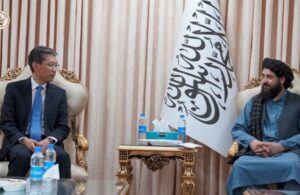MONITORING (SW) – Afghanistan has seen massive changes, but one thing is clear: The Afghan people cannot pay the price for these changes as the humanitarian needs in the country remain massive, warned the International Committee of Red Cross.
“Temperatures in #Afghanistan have gone well below 0 degrees in the last few days. Afghan families are burning anything they can get their hands on to keep warm. The economic collapse has left thousands of Afghans without means to cope with increasing challenges”, it tweeted.
With the Afghan Red Crescent, the ICRC said it will significantly increase the number of health structures it will work to ensure the dignity of detained populations, to connect separated families across borders, including the immediate need to reunite children with their families.
President of the ICRC, Peter Maurer, said the ICRC has served the people of Afghanistan for 30 years. “We won’t stop now. The ICRC is not evacuating or withdrawing staff from Afghanistan. We remain operational across the country, together with our partner the Afghan Red Crescent Society”.
He said outside of Kabul, people continue to be injured by mines and explosive devices. “Our staff at Mirwais Regional Hospital in Kandahar report receiving referrals from people wounded by explosive weapons, many of whom are children, and amputations are often required. This comes on top of having received a huge influx of patients injured by weapons during heavy fighting in recent weeks”.
The ICRC has access across the country.
“We have been working in Taliban-controlled areas for years and we have a positive working relationship with them, at both the top level and the local leadership level. The changes in Afghanistan have not changed our relationship with them, and the current situation doesn’t change the way we seek to operate”.
Health care is a clear and urgent need. Thousands of people were injured in the last weeks as fighting raged in cities.
“We helped treat more than 7,600 people wounded by weapons in the first two weeks of August across 48 health care facilities. More than 40,000 people wounded by weapons have been treated at ICRC-supported facilities in June, July and August”, he said.
The ICRC President: “Despite an end to the fighting, the economic, social and humanitarian emergency is deepening”
ENDS






